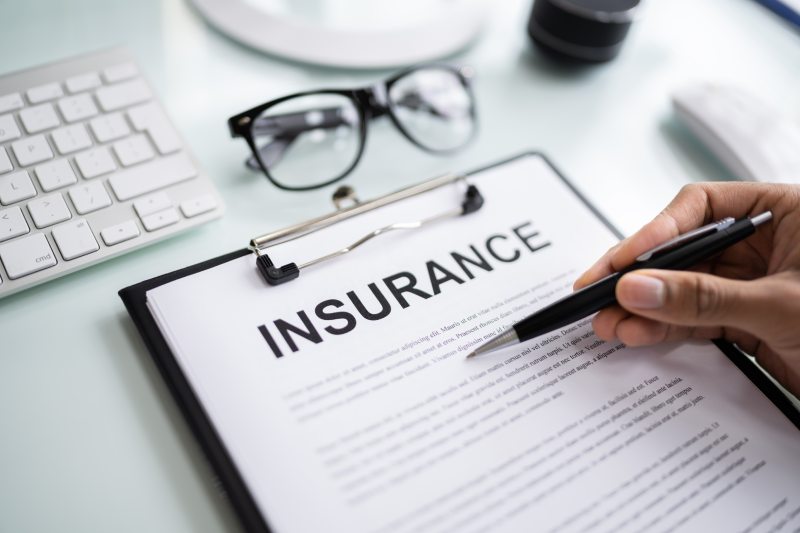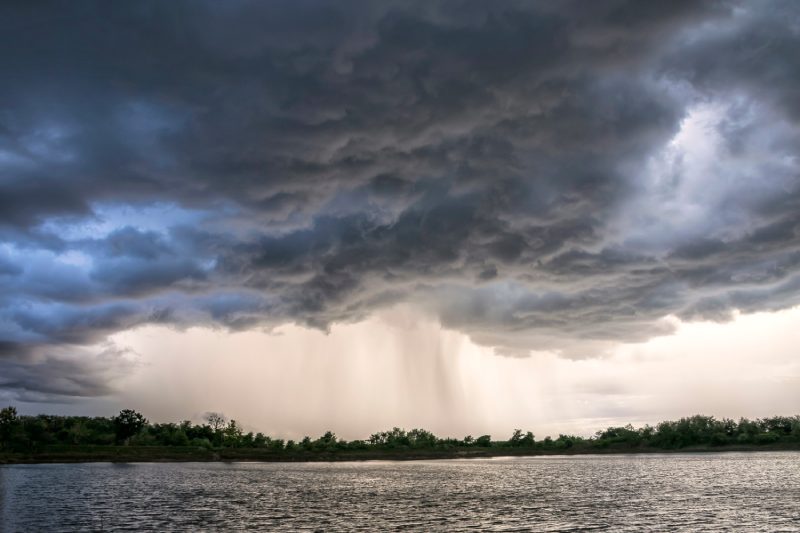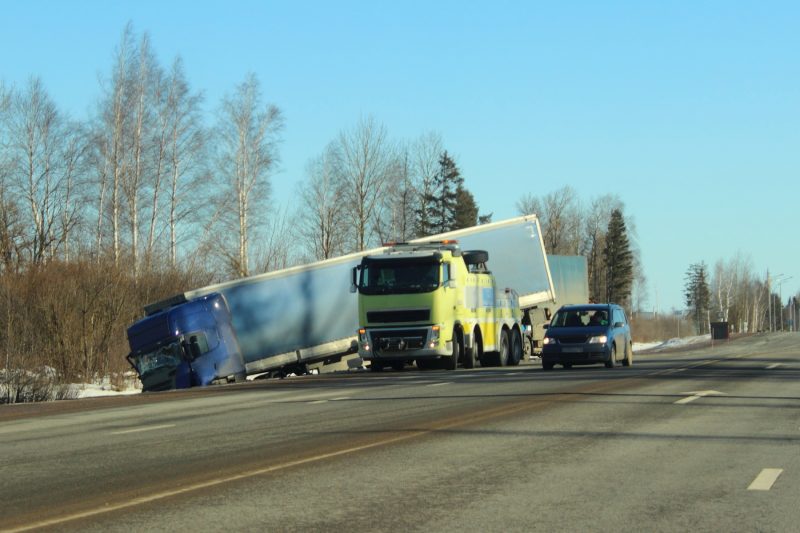
Trucking plays a vital role in the movement of goods across the Rio Grande Valley and across the Valley’s U.S./Mexico border. However, in order for consumers and essential products to connect effectively, trucking companies and their clients must adhere to the area’s regulations and insurance requirements.
In order to equip you to remain in compliance and enjoy a smoother trucking process, we have put together this comprehensive guide to trucking regulations and insurance requirements in the Rio Grande Valley.

Federal Trucking Regulations
When trucking items through any part of the Rio Grande Valley, you must first make sure you remain in compliance with the regulations of the Federal Motor Carrier Safety Administration (FMCSA). These regulations, which apply to trucking across the Valley and the nation, include the following:
Compliance With Hours of Service
In order to prevent sleepy drivers from causing accidents on the road, the FMCSA requires drivers to follow certain Hours of Service (HOS). These hours limit the amount of driving time truck operators can engage in at one time, while also implementing required rest breaks, daily and weekly driving limits and more. The goal is to maintain road safety by ensuring that all truck drivers are alert and responsive behind the wheel.
Vehicle Weight Limits and Size Restrictions
In addition, the FMCSA carefully regulates the weight and size of commercial vehicles in order to protect road infrastructure and prevent damage from oversized vehicles. Appropriately sized and weighted trucks reduce stress on bridges, ensure safe manuevering on roads and highways and reduce the number of accidents.
Requirements will depend upon the type of truck you operate. However, in general, federal limits on weight are a total limit of 80,000 pounds, with a single-axle limit of 20,000 pounds. Meanwhile, trucks may not exceed a width of 96 inches. These requirements apply to trucks that spend any portion of a trip on the country’s interstate system.
Vehicle Maintenance and Inspection Protocols
Finally, federal regulations require you to keep your trucks maintained and inspected on a set schedule. As a result, if you operate a truck in the Rio Grande Valley, you must ensure that your vehicles are regularly inspected, maintained on schedule, and repaired promptly when needed. These regulations help you reduce the occurrence of mechanical issues and breakdowns that can endanger your vehicles, your drivers and other people on the road.

Texas Department of Transportation (TxDOT) Regulations
In addition to federal regulations, you must also stay abreast of and in compliance with state-specific regulations when operating in the RGV. These requirements encompass everything from Texas road-specific regulations to state-specific registration, licensing and permitting standards to safety standards.
Vehicle Registration, Licensing, and Permits
In order to operate your trucks in Texas, and in the Rio Grande Valley in general, you must comply with TxDOT’s requirements for vehicle registration, licensing and permits for commercial vehicles. For example, you may need to do the following:
- Obtain a permit for oversized or overweight loads
- Comply with axle weight limits
- Follow route restrictions for certain goods
- Use hazardous material placards when applicable
- And more
Safety Standards and Guidelines
In order to keep road conditions safe and to reduce accidents, TxDOT also has stringent safety standards to which your trucks must adhere. For example, here are some of the safety standards and guidelines you will need to follow in order to be safe and legal while trucking in the Rio Grande Valley:
- Load securement regulations to prevent load shifts or falling items during transport
- Signage requirements, such as those for labeling hazardous loads
- Reflective markers and signs to improve visibility
- Equipment standards to ensure safe and well-maintained vehicles
Compliance and Penalties
In order to ensure that trucking companies comply with relevant requirements, the TxDOT conducts regular inspections of trucks on state roads. If you fail to comply with these regulations, you could face a number of disciplinary measures, including
- Citations
- Fines
- Operation suspension
If you plan to engage in trucking transportation in the Rio Grande Valley, you must stay up to date on any changes in regulations and requirements that apply to your operation. In addition, you may need to implement training programs for your drivers, ensure regular inspections of your vehicles, and implement protocols for staying on top of all relevant regulations and requirements.

Environmental Protection Agency (EPA) Regulations
The Environmental Protection Agency (EPA) affects trucking in the Rio Grande Valley by maintaining emissions standards for commercial vehicles. The goal of these requirements is to minimize the environmental impact of trucking on the environment. Here is a look at some of the ways in which the EPA influences trucking in the Valley.
Emissions Standards for Trucks
The EPA sets limits on the emissions levels allowed from commercial vehicles like trucks. These restrictions affect the most major air pollutants, including nitrogen oxides, particulate matter, hydrocarbons, and others. In addition to limiting the amount of emissions allowed by your trucks, the EPA requires you to implement certain technologie to reduce the release of pollutants into the environment. Examples of these technologies include diesel particulate filters and selective catalytic reduction systems.
Adherence to Emissions Control Measures
In addition, the EPA requires trucking companies to engage in specific measures to control emissions. These may include regular vehicle maintenance, engine tuning, following manufacturer-recommended service schedules and adding emission control technology to older vehicles.
Compliance Enforcement
In order to ensure that truckers follow all applicable requirements, the EPA may enforce their regulations through practices such as the following:
- Emissions testing
- Inspections
- Certification requirements
If you fail to comply with EPA requirements, you could face a number of disciplinary measures, including fines, corrective actions or other penalties. Want to avoid these problems? Try these steps to remain in EPA compliance:
- Implementing regular maintenance schedules
- Investing in new equipment
- Utilizing clean energy technology
- Using low-emission fuels
- Training employees on eco-friendly driving techniques
- Engaging in collaborative initiatives to reduce your carbon footprint
Insurance Requirements for Trucking in the Rio Grande Valley
Before you can engage in trucking practices in the Rio Grande Valley, you need to make sure that each of your trucks meets insurance requirements. Here are some of the types of trucking insurance you may need for your vehicle:
Liability Insurance
Liability insurance covers damages or injuries caused by accidents that involve your trucks, whether on or off the road. You can purchase coverage for your vehicles, for property and other people’s vehicles, and even physical injury caused by your vehicles.
You must meet certain federal and state minimums when it comes to liability coverage, but you may want to purchase higher coverage limits in order to protect yourself against any potential accident.
Cargo Insurance
When trucking in the Rio Grande Valley, you need to protect your cargo as well as your vehicles. Cargo insurance can protect you in the event of damage, theft, or loss of the goods you are transporting during your trip. The exact limits you should purchase depend upon factors such as the type of cargo you are carrying. For example, hazardous material may require more coverage than non hazardous loads.
Bobtail Insurance
Bobtail insurance is an additional type of coverage for times when accidents occur while your truck is not pulling a load. For example, bobtail insurance will protect you if you get into an accident when driving an empty trailer back from a load delivery.
Under no circumstances should you ever operate your trucks without insurance – You could end up facing significant financial and legal consequences. If you want to obtain the appropriate insurance coverage for your trucking operation, you should work with a reliable insurance agency. The right professional, like those at SafeGuard Insurance Agency, can help you evaluate your insurance needs and obtain the right coverage.



































